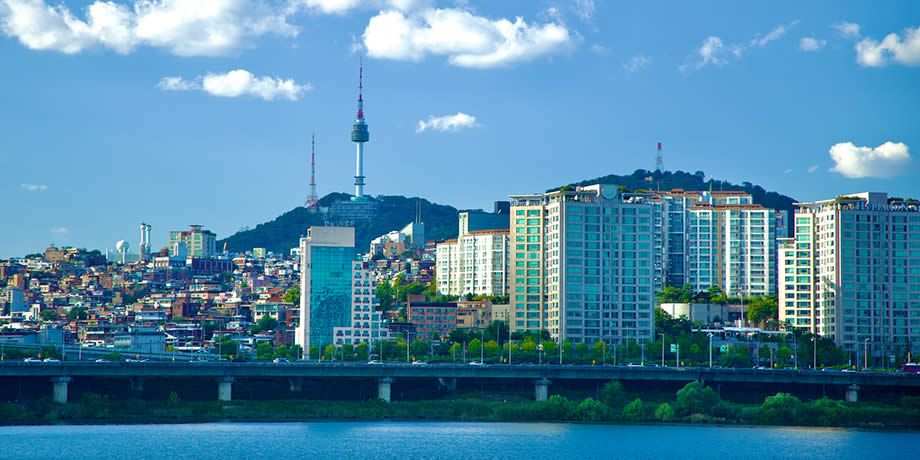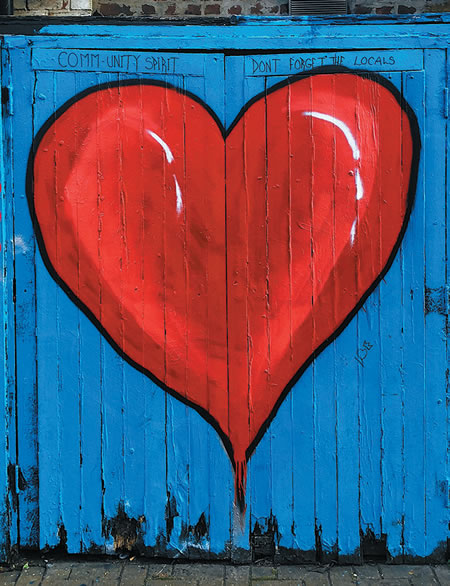
The Korean proverb “A neighbor nearby is better than a distant relative” emphasizes the importance of having a good relationship with neighbors, as neighbors are often more reliable and helpful in times of need than distant relatives. It suggests that community and neighborly bonds are valuable and should be nurtured. As a missionary who is living with many migrants, I often reflect on what it means to become a true neighbor in the community.
Iteawon, Seoul, is a representative multicultural district in Korea. It is divided into two parts. One is where many foreign tourists and rich people live a colorful lifestyle, and the other one is where poor people and migrants come to make money, to live and support their family in their home country. I am living in the second part, and my neighbors are mostly undocumented people, humanitarian sojourners and asylum seekers. In this place I can encounter more migrants than Koreans on the streets.
 I believe that meeting people from diverse ethnic backgrounds, learning about their cultures, and sharing our own is a special gift. However, I think, it is important to recognize the challenges faced by migrants, including humanitarian sojourners and asylum seekers in Korea. The strict screening process and relatively low refugee acceptance rate make it difficult for them to establish a new life here. Despite these challenges, many migrants are grateful for the opportunity of work, to save and send financial support to their families back home. But some people struggle with the cultural adaptation and find it difficult to build relationships with others and integrate fully into with new neighbors. When I see people facing various difficulties and challenges, it reminds me of the experiences I had while living as a missionary in other cultures. So I can easily relate my experience to their life and now, living in the community with them, helps me understand more about their real situation.
I believe that meeting people from diverse ethnic backgrounds, learning about their cultures, and sharing our own is a special gift. However, I think, it is important to recognize the challenges faced by migrants, including humanitarian sojourners and asylum seekers in Korea. The strict screening process and relatively low refugee acceptance rate make it difficult for them to establish a new life here. Despite these challenges, many migrants are grateful for the opportunity of work, to save and send financial support to their families back home. But some people struggle with the cultural adaptation and find it difficult to build relationships with others and integrate fully into with new neighbors. When I see people facing various difficulties and challenges, it reminds me of the experiences I had while living as a missionary in other cultures. So I can easily relate my experience to their life and now, living in the community with them, helps me understand more about their real situation.
I am meeting the people and building friendship through visitation, teaching basic Korean language, inviting them to cooking classes and accompanying them to the hospital and immigration office. One of the things I feel grateful and rewarded by, while living as neighbors with these people as a missionary, is seeing the smiles of people who had lost their smiles.
For example there is one of mother from Bangladesh who is now learning Korean language. She had experienced depression and isolation herself staying at home without engaging in outside activities. The language, the cultural barrier and her attitude were challenging for both her and her children. When I visited her for the first time, she was lying down on her bed in a dark room. But through visiting and encouraging her to learn Korean and inviting her to other activities, she is now slowly coming out from her self-contained world to the real world. We still have some difficulties in communicating with each other, but even if it is very seldom, I see her smiling and listening to others talk. She needs more courage herself, to be challenged to overcome her obstacles and connect to her new environment. But I am happy to see her smile, and I want to congratulate and welcome her out from her own world.
I can say I am still in the stage of learning about the migrants’ situation and their life in Korea. What I am doing with them are little things, but I think the little things I am doing, and the time with them are valuable, enabling me to become a true neighbor. I will continue to build relationships and friendship with them in welcoming, respecting, understanding and giving empathy regardless their background or circumstances. And as a missionary, I hope to offer comfort and courage for those who feel fear in the darkness or cannot see hope in their life to emerge into a brighter place.
Columban lay missionary Lee Kyungja Christina lives and works in Seoul.